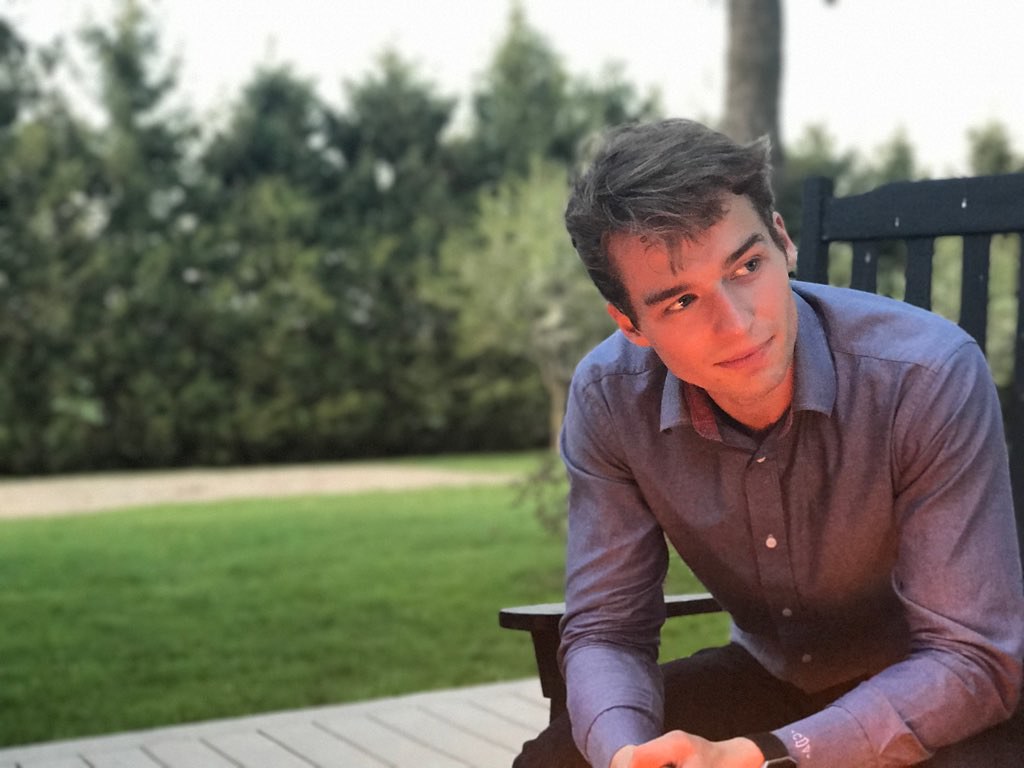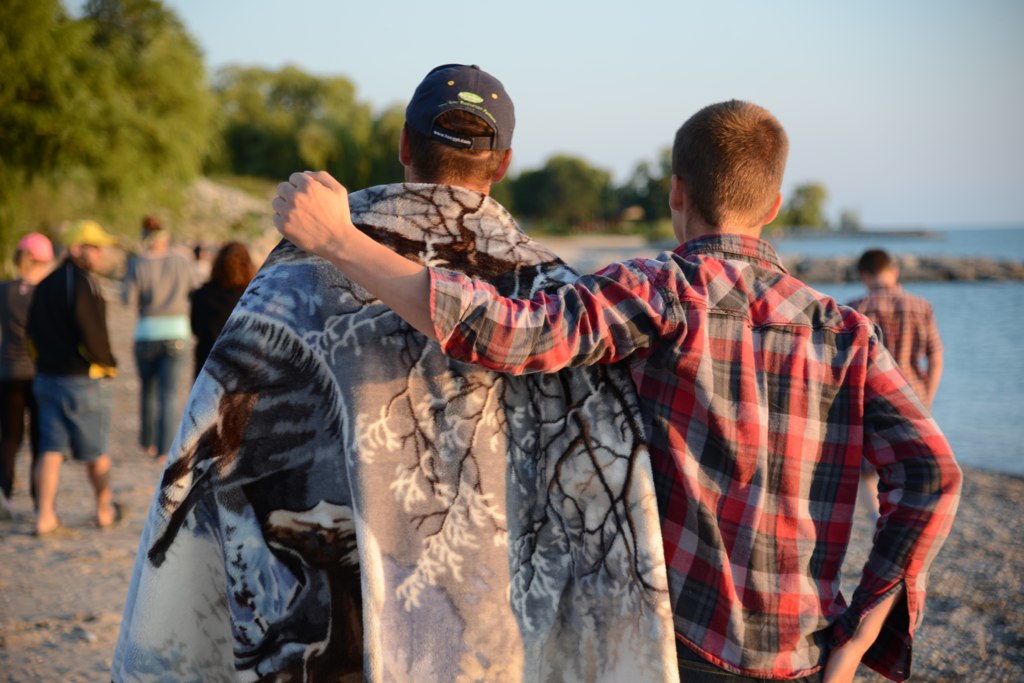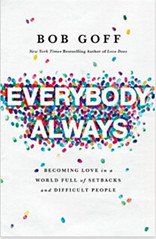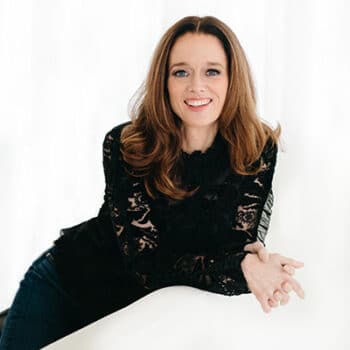I’ve known Bob Goff for a long time and we’re good friends. We’ve stood up for some of the same things and stood against some other things. Here’s the thing – we’re not trying to be like each other; we’re trying to be like Jesus. Bob has written a new book called “Everybody Always.” It’s about loving people who are different than us. It’s not about putting aside our differences, but putting Jesus in the middle of them. In his book, Bob talks about castles and Kingdoms. He says castles have moats to keep people out, but Kingdoms have bridges to let everyone in. Castles have dungeons for people who have messed up, but Kingdoms have grace. I agree with him. The people who intimidate us out aren’t obstacles to having faith; they’re opportunities to understand it. It’s a grace to welcome Bob to the farm’s front porch today…
I
got into the back of the limo and talked to the driver through the window dividing us as we traversed Orlando on the highway.
The driver was a friendly, engaging guy. After we’d driven a short time, I said, “You know, this is the first time I’ve ever been to Orlando, but if someone asked me what I thought about everyone in the city, you know what I’d tell them? I’d say I think everyone in Orlando is just terrific. Do you know why? It’s simple—because you’re a nice guy!”
I thought how the opposite was true as well.
If the limo driver had been mean or rude or pushy with me and someone asked me what I thought of everyone in Orlando, I would have said, “I think everyone in Orlando is mean or rude or pushy.”
Neither statement would be true, but somehow, because of how we’re wired, when we’ve met one person we feel as if we’ve met everybody.
Think about it. If you know just one person in Mexico or the Philippines or Bolivia or Lichtenstein and something happens in one of those countries, don’t you feel a kinship with everyone there? It feels like we’ve met everybody in those countries even though, obviously, we haven’t yet.
I bet this is what Jesus meant when He told His friends that people would understand who He was by watching how we treated each other.









Early on I thought big acts of generosity or great sermons or arenas full of people singing songs would help us understand God’s love for us.
He said it was none of these.
Jesus told His friends that letting people see the way we love each other would be the best way to let people know about Him.It wouldn’t be because we’d given them a lot of directions or instructions or because they memorized or studied all the right things.
It would be because someone met you or me and felt as if they’d just met Jesus.
I think what He meant was He wanted someone to meet a person who loved Him and then feel like they had just met heaven—everyone there.
We drove a little farther through the city, and the driver told me about his life and the people he loved. He also said he’d been driving limos for twenty-five years.
“Wow,” I said. “I bet you’ve met some interesting people in that time—not me, of course, but you know, famous people.”
“I have,” he said. “I’m really going to miss this job, because I’m retiring next month.”
I sat back in my seat, watched the palm trees pass by for a few more minutes, and then I had a thought. I leaned forward and said through the glass, “Hey buddy, have you ever ridden in the back of one of these limos? I bet you’d love it. They’re terrific!”
He laughed and said, “Of course not. I’d get fired.”
Now I had my arm through the glass between the driver’s seat and the living-room sized back seats in the limo. I think I even got a shoulder through the window.
“Hey, you’re retiring anyway. Pull over!” I said.
And you know what?
He did!
I got out of the back of the car, and we swapped places. He got in the back, and I put on his hat and jumped behind the wheel and drove us to Disney World. He got there about fifteen minutes after me—it was a pretty long limo.
I carry medals with me all the time. They don’t say anything on them. I’m a lawyer, so the medals mean whatever I say they mean.
I opened the door and let my limo-driver friend out from the back seat. He stood up and straightened his jacket, and I was still wearing his hat.
I pinned a medal on his chest and said, “You’re brave. You’re courageous. You’re foolhardy! Did you see how I took that last turn?”
I spoke words of truth and affirmation to him with a smile. I patted him on the chest, gave him a hug, and walked into the hotel.
When the limo driver went home that night to the woman he’s been living with for the past ten years, do you think he told her he’d met a Christian guy that day who told him he was supposed to be married? Of course not! I bet he told her he’d met a guy who told him who he was.
That’s our job. It’s always been our job. We’re supposed to just love the people in front of us. We’re the ones who tell them who they are.
We don’t need to spend as much time as we do telling people what we think about what they’re doing.
Loving people doesn’t mean we need to control their conduct. There’s a big difference between the two. Loving people means caring without an agenda.
As soon as we have an agenda, it’s not love anymore. It’s acting like you care to get someone to do what you want or what you think God wants them to do.
Do less of that, and people will see a lot less of you and more of Jesus.
Talk behind each other’s backs constantly. Just talk about the right stuff.
Talk about Jesus. Talk about grace. Talk about love and acceptance. People don’t grow where they are informed; they grow where they’re loved and accepted.
Talk about who people are becoming and who you see them turning into.
And give people medals, lots of them. The people around us should be walking around looking like the chairman of the Joint Chiefs of Staff.
They should jingle when they walk.
It’s this simple: I want people to meet you and me and feel like they’ve just met everyone in heaven.
Bob Goff is the founder of Love Does, a nonprofit organization that operates schools and safe houses and pursues justice for women and children in conflict areas such as Uganda, Somalia, Iraq and Afghanistan. Bob is a recovering lawyer and he serves as the honorary consul of the Republic of Uganda to the United States. He lives in San Diego with Sweet Maria near their adults kids and growing family.
Everybody, Always reveals the lessons Bob learned—often the hard way—about what it means to love without inhibition, insecurity, or restriction. From finding the right friends to discovering the upside of failure, Everybody, Always points the way to embodying love by doing the unexpected, the intimidating, the seemingly impossible.
Driven by Bob’s trademark hilarious and insightful storytelling, Everybody, Always takes readers on a life-altering journey into the secret of living without fear, care, constraint, or worry. The path toward the outsized, unfettered, liberated existence we all long for is found in a truth as simple to say as it is hard to do: love people, even the difficult ones, without distinction and without limits.
[ Our humble thanks to Thomas Nelson for their partnership in today’s devotion ]








